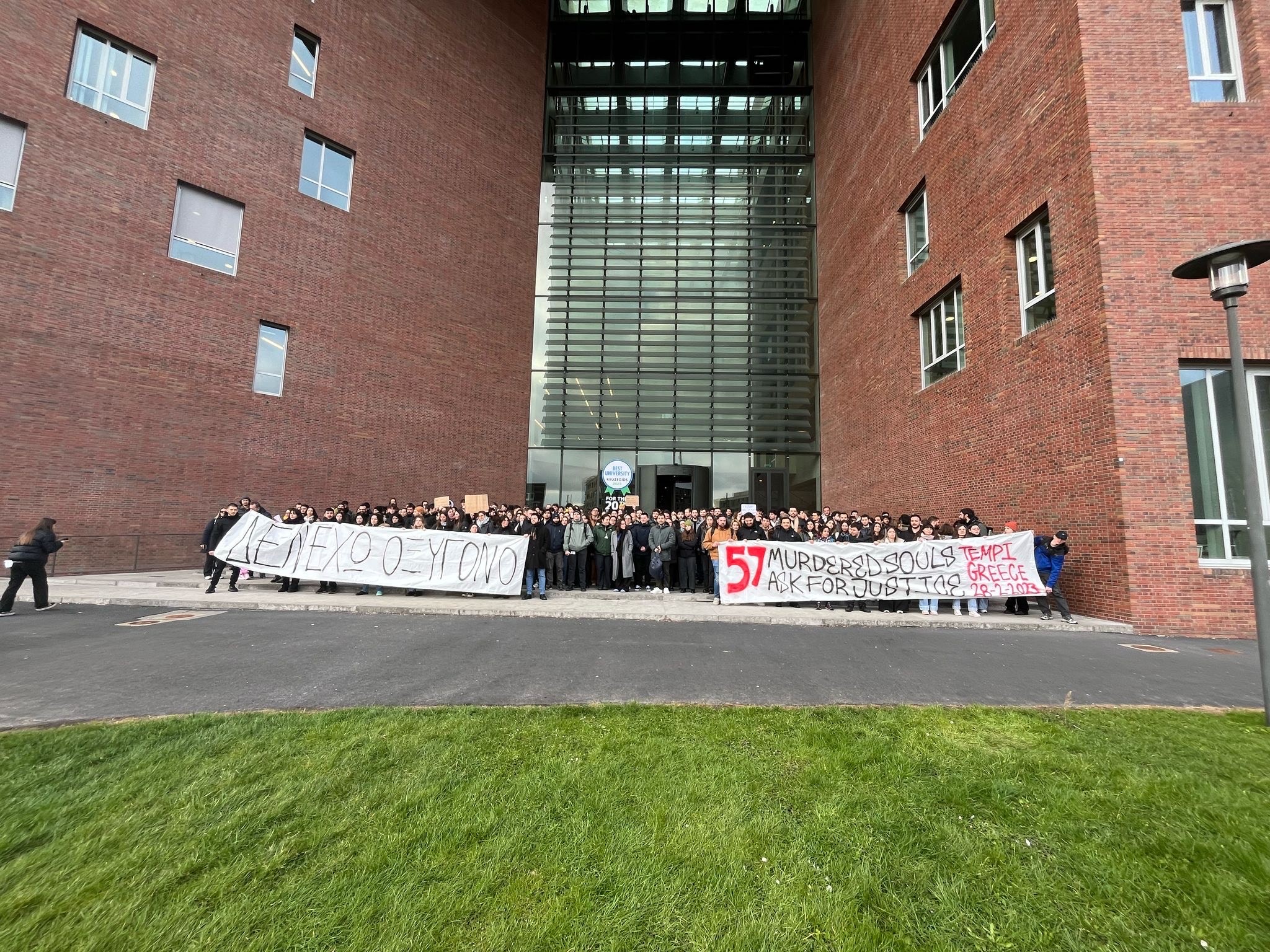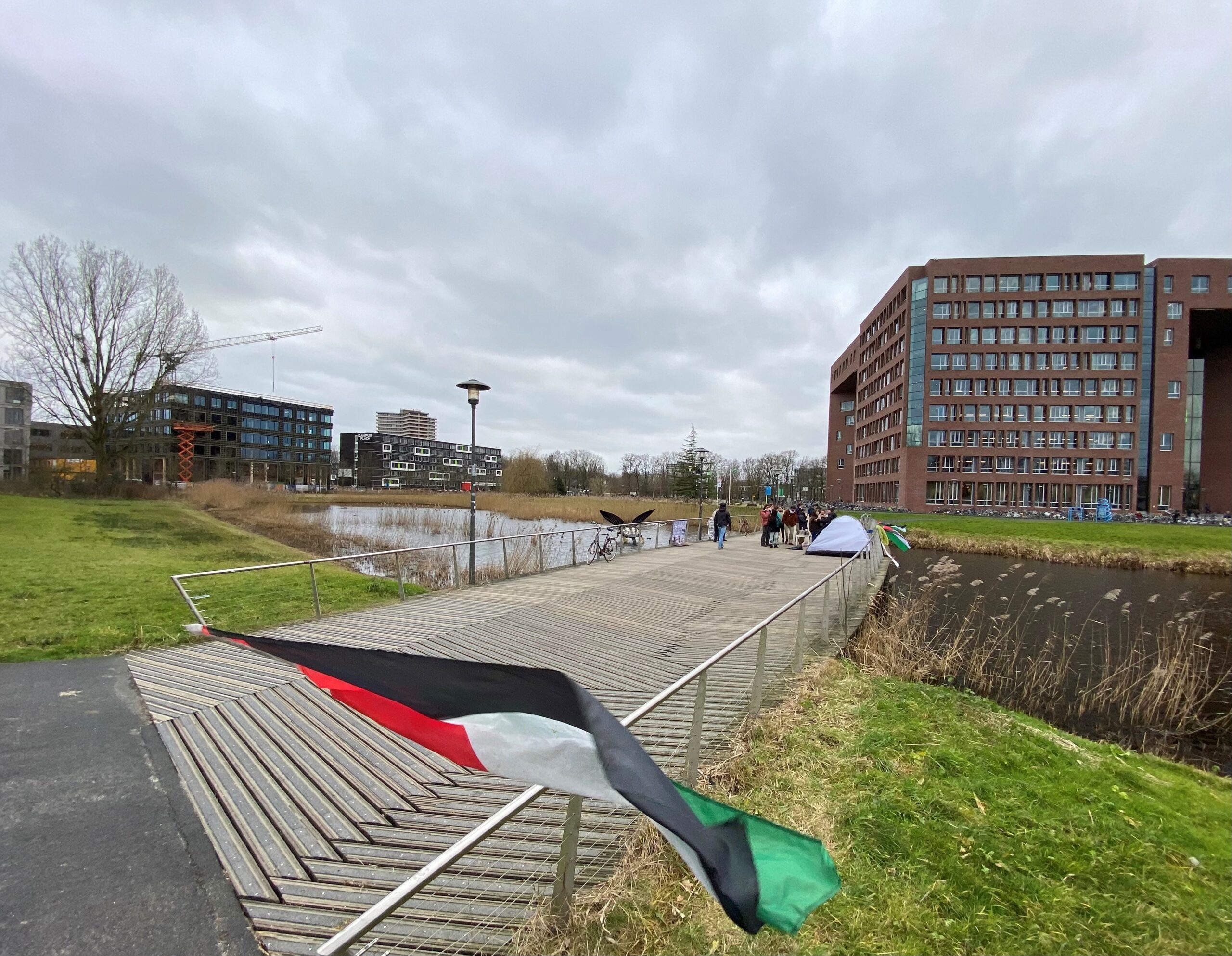The committee which was established in June after discussions on partnerships between WUR and fossil businesses, has submitted its advice to the executive board today. The advice consists of a framework with three criteria that can be used to assess prospective partners. ‘It is not the ultimate solution, but it will create more awareness.’
Ties between the university and businesses in the fossil industry were the subject of debate in Wageningen this past year. Forum formed the backdrop for an occupation in the summer, during which protesters demanded that WUR sever all ties with the fossil industry. Teachers expressed their displeasure over the fossil partnerships with a reading marathon during which the sixth IPCC report was read out loud in Atlas. WUR organised three ‘Let’s Explore’ sessions to discuss dilemmas surrounding collaboration (or the termination thereof).
Checking the partner
In July, the executive board decided to establish an advisory board to formulate criteria for new partnerships for fossil businesses to begin with. WUR currently assesses the project proposal only in terms of the existing collaboration principles. The new criteria will explicitly include the prospective partner.
The recommendation consists of a decision-making framework with three stages. The first is a general ruling of whether the project aligns with WUR’s mission. During the second stage, the partner is assessed, for example, whether the business is part of the fossil industry. Moreover, a check is conducted to determine whether the prospective partner intentionally obstructs the Paris Agreement. Finally, WUR (and not the partner) must bear responsibility for the research goals, and the partner’s financial contribution may not be more than 30 per cent of the total research budget.
‘No silver bullet’
If objections are found in steps one and two, stage three becomes effective: The person responsible for acquisition must write a “reflective” report detailing ‘why the partnership is in WUR’s strategic interests,’ the recommendation states. This will be assessed by an advisory committee that is yet to be formed. The decision-making framework does not offer a silver bullet solution for all issues surrounding collaboration with the fossil industry. Committee chair and professor of Environmental Technology Carolien Kroeze: ‘I’ll be the first to admit, this framework is not a silver bullet solution. Wicked dilemmas will always exist. What we have seen in these past few months is that the process leads to increased awareness. Colleagues now ask themselves: “Is this project fitting?”. It is precisely this type of question for which the framework is helpful.’
Ultimately, the science group director is responsible for deciding whether or not a partnership can be set up. The executive board can intervene if the need arises. The recommendations, which are non-binding, will be published in an annual report.
‘More diligent decisions’
The executive board will reach a decision on the recommendation in the new year. Board member Rens Buchwaldt: ‘There is no simple, one-dimensional answer, and we value being able to make decisions on prospective partnerships in a substantiated, reproducible manner. We will study the recommendations and reveal how they can be translated into decision-making as soon as possible.’

 The advice focuses on assessing those with whom to collaborate. Photo Unsplash/Xavier von Erlach
The advice focuses on assessing those with whom to collaborate. Photo Unsplash/Xavier von Erlach 

